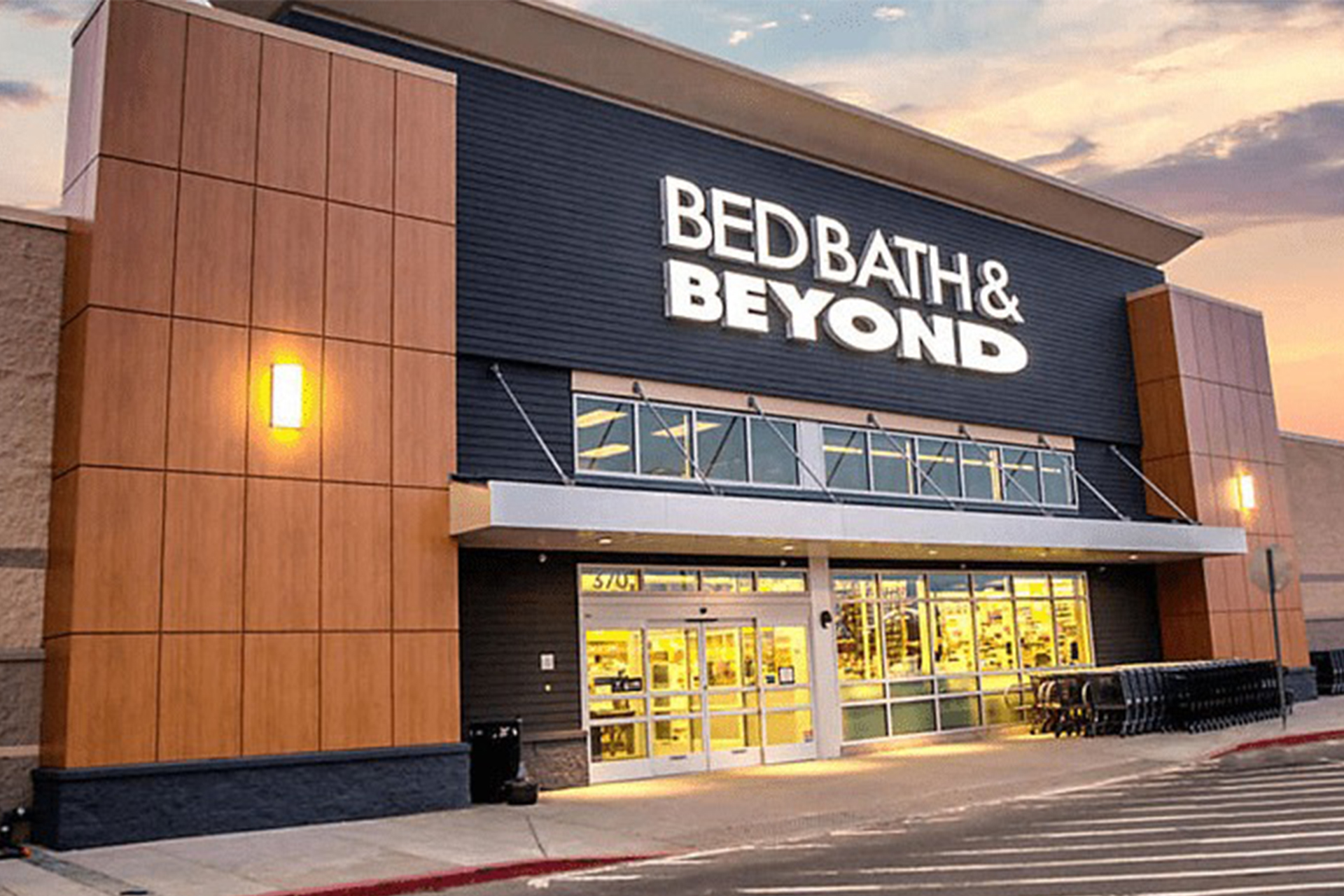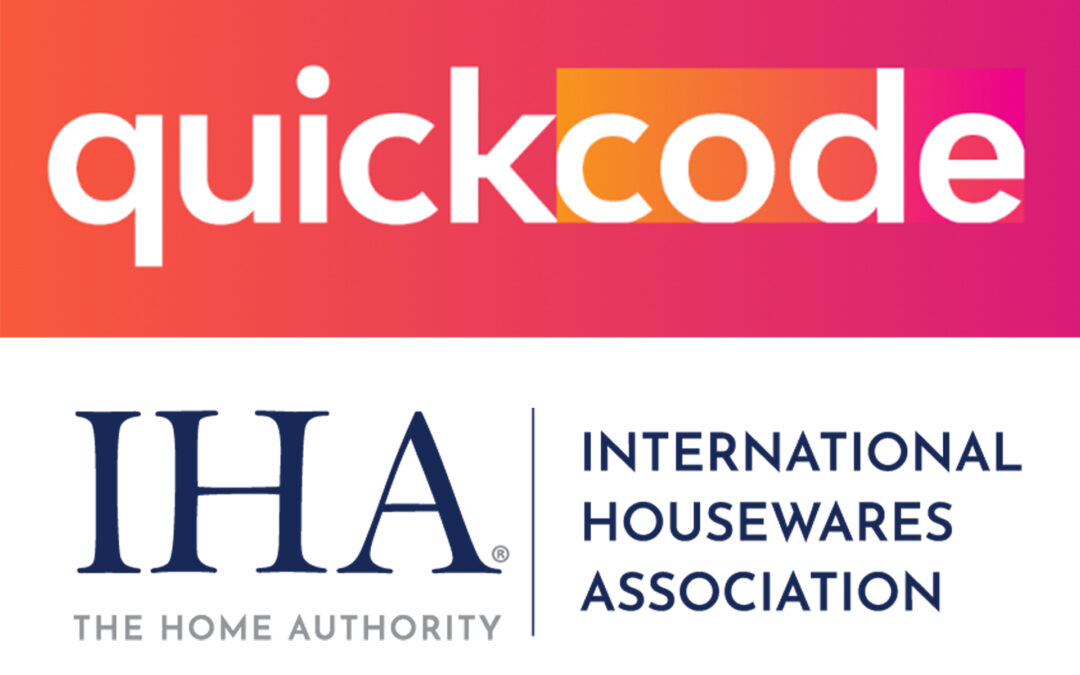Bed Bath & Beyond posted a fourth-quarter net loss and a comparable sales decline versus 2020 and 2019, attributed in part by company management to global supply chain disruption that limited inventory availability during the quarter.
The retailer’s net loss in the quarter was $159.1 million, or $1.79 per diluted share, versus a net income of $9.1 million, or eight cents per diluted share, in the year-prior quarter. Net loss adjusted for one-time events was $82 million, or 92 cents per diluted share, the company stated, versus adjusted net income of $47 million, or 40 cents per diluted share, in the year-earlier period.
An analyst consensus estimate published by Yahoo Finance called for net income per adjusted diluted share of three cents and sales of $2.07 billion.
Comparable sales declined 12% versus the fourth quarter of 2020 and 8% versus the same period in 2019, Bed Bath & Beyond noted. Digital comps declined 18% versus 2020.
Net sales were $2.05 billion versus $2.62 billion in the year-before quarter. Operating loss was $165.5 million versus an operating loss of $23.7 million in the year-previous period, Bed Bath & Beyond reported.
Bed Bath & Beyond estimated that inventory availability challenges had a $175 million impact on net sales in the 2021 quarter driven by its namesake banner.
For the full fiscal year, net loss was $560 million, or $5.64 per diluted share, versus $150.8 million, or $1.24 per diluted share, in the year prior.
Net sales were $7.87 billion versus $9.23 billion in the year before. Operating loss was $407.6 million versus $336.9 million in the year previous, Bed Bath & Beyond indicated.
In a conference call, Mark Tritton, Bed Bath & Beyond’s president and CEO, said the fourth-quarter results demonstrated the need for a transformative long-term company strategy and that it would forge ahead with the one it formulated. As an example of how it had advanced in the fourth quarter and would continue doing so, Tritton said the company would continue to align marketing resources with in-stock availability and redirect activities to other avenues, such as postcards and doorbuster events, that saw relative success, even if they don’t match the traffic generating power of the Bed Bath & Beyond circular. The company will increase structurally healthier merchandise margins to its own brands, as well as conduct more efficient pricing and promotion optimization, Tritton added.
In announcing the financial results, Tritton said, “We are disappointed that our sales and gross margin performance does not reflect our team’s hard work and execution against both strategic and transformation efforts in 2021. Macroeconomic factors, such as the disruption of the global supply chain, the Omicron variant, as well as the geopolitical turbulence weighing on consumer confidence have uncovered more vulnerabilities than we could have foreseen at this stage of our transformation, as we completely rebuild the foundation of our business.”
Tritton pointed out that a “lack of available inventory to sell proved to be a continuing impediment to sales through the remainder of the fourth quarter and into the early part of fiscal 2022. Specifically, despite our overall inventory levels, product in transit, not available for sale or held at port, remained abnormally high, particularly in key items. We estimate an impact of approximately $175 million to our fourth-quarter sales, or a high-single-digit deficit, as a result of a lack of in-stock availability in our Bed Bath banner. Positive product-related margin expansion associated with our owned brands, pricing and promo optimization were offset by escalating supply chain costs.”
On the positive side, Tritton said, buybuy Baby performed well.
“Encouragingly, buybuy Baby delivered its sales goal for the quarter which led to $1.4 billion in sales for the full year, growing double-digit, at an estimated mid-single-digit adjusted EBITDA margin,” Tritton said. “Our buybuy Baby and Harmon banners demonstrate our ability to achieve stabilization and growth when there is strength in the face of macroeconomic factors given its domestic supply chain, as well as different key product demand such as apparel and gear versus our Bed Bath banner.”
Tritton added, “Fiscal 2021 was a year of rebuilding in the face of substantial industry and operational headwinds during the first year of our transformation. While our operational execution may have thwarted our near-term efforts, our focus also remains on our long-term strategy and transformation. The extraordinary circumstances we face today, burdened by the lingering effects of our previous infrastructure, have continued to impact our near-term visibility and performance. As we progress through 2022, the investments we are making in our supply chain and technological foundation are designed to greatly improve our proficiencies, enabling us to overcome the types of challenges we are facing currently. The core tenets of our strategy are sound, and we will improve our operational deficits by learning from our experiences and leveraging the strength of our dedicated teams to renew our business for long-term growth.”





